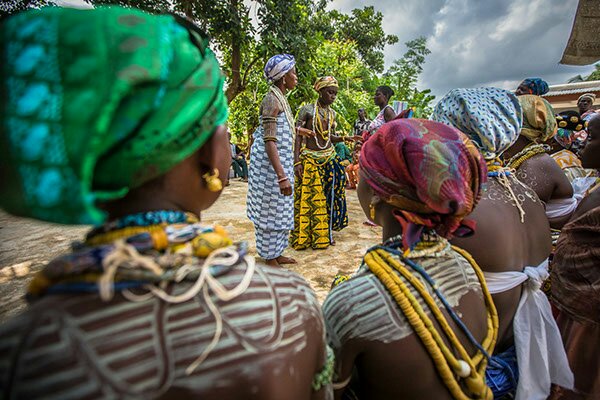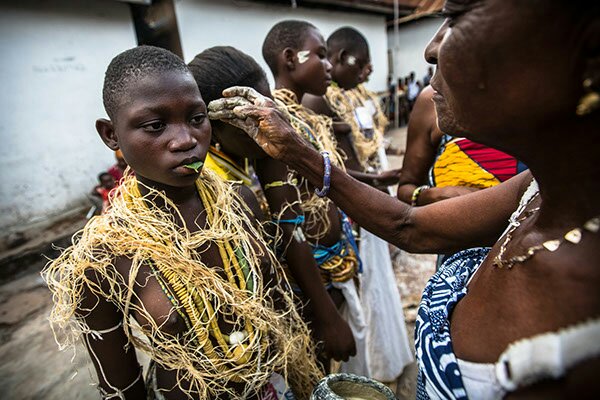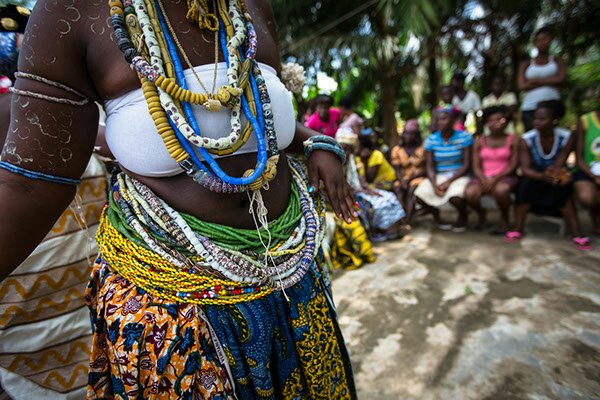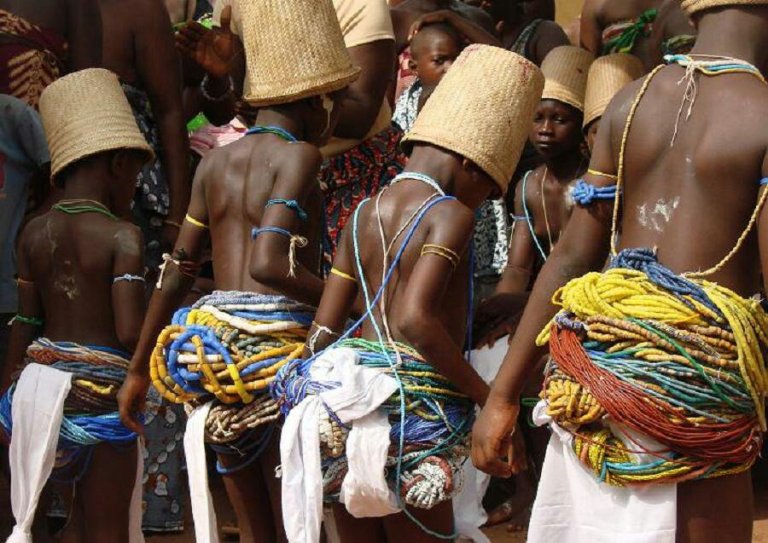By: Emmanuel Amoah
The Odumase Krobo people, an ethnic group in Ghana’s Eastern Region, are celebrated for their rich cultural traditions, particularly during the month of April each year.
One of their most important customs is the dipo initiation ritual, a rite of passage that signifies a young girl’s transition into womanhood. This lively ceremony highlights the Krobo people’s strong commitment to preserving their cultural identity and values.

The Dipo Rite Ceremony:
The dipo ceremony is an elaborate and vibrant event, usually performed when a girl reaches puberty. The ritual begins with the selection of participants, who are then secluded for a period of training and preparation. During this time, the girls are taught essential life skills such as cooking, cleaning, and childcare, along with traditional dances and songs.
On the first day of the ceremony, the girls’ heads are shaved, and they are dressed in cloth tied around their waists, reaching down to their knees. This is done by a special ritual mother, symbolizing their transition from childhood to adulthood. The initiates, known as dipo-yo, are then paraded through the community.
Early the next morning, the chief priest administers a ritual bath to the initiates. He pours libation, asking for blessings for the girls, and washes their feet with the blood of a goat provided by their parents. This act is believed to ward off the spirit of barrenness. The most crucial part of the rite is when the girls sit on a sacred stone to prove their virginity. Any girl found to be pregnant or not a virgin is rejected by the community and becomes undesirable to men of the tribe.

The ceremony itself includes several activities:
- Body painting: Intricate designs are applied to the girls’ bodies using natural pigments.
- Dancing: The girls perform traditional dances, showcasing their beauty and grace.
- Gift-giving: The girls receive gifts from family and friends, symbolizing their transition to womanhood.
- Feasting: A grand feast is held in honor of the initiates, featuring traditional food and drinks.
The Importance of the Dipo Rite:
The dipo ceremony holds deep significance for the Krobo people and serves several purposes:
- Rite of passage: It marks a girl’s transition from childhood to womanhood.
- Cultural preservation: It passes down traditional values, customs, and skills to the next generation.
- Community bonding: It fosters unity and solidarity among community members.
- Empowerment: It prepares young women for their roles in society, emphasizing their importance and value.

Relevance in Modern Times:
Despite the many changes in the world, the dipo ceremony remains a crucial part of Krobo culture and identity.
It continues to play a vital role in preserving cultural heritage, promoting community cohesion, empowering young women, and providing a sense of belonging and connection to their roots.
In conclusion, the dipo rites of the Krobo people are a vibrant and integral part of their cultural identity. This ancient tradition continues to inspire and empower young women, ensuring the preservation of Krobo customs and values for future generations.
As the world evolves, the dipo ceremony stands as a powerful testament to the enduring significance of culture and tradition.






